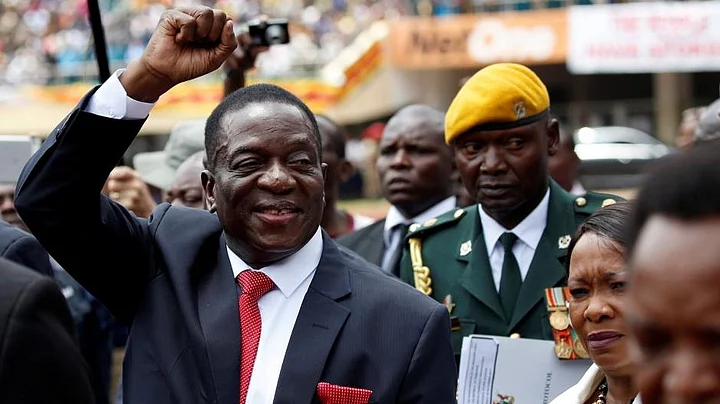Zimbabwe President Emmerson Mnangagwa, a former spy chief installed after Robert Mugabe’s removal in a coup in November, was elected on Thursday, 2 August, after a poll marred by the deaths of six people in an army crackdown on opposition protests.
After two days of claims and counterclaims, the 75-year-old Mnangagwa secured a comfortable victory, polling 2.46 million votes against 2.15 million for 40-year-old opposition leader Nelson Chamisa.
The election, the first since the army’s removal of 94-year-old Mugabe, passed off relatively smoothly but its aftermath revealed the deep rifts in Zimbabwean society and the instinctive heavy-handedness of the security forces.
Clashes Post Election
On Wednesday, 1 August, troops backed by armored vehicles and a military helicopter were sent in to crush demonstrations by stone-throwing opposition supporters who said Mnangagwa’s ZANU-PF party had rigged the elections.
Six people were killed as soldiers, some with their faces obscured by camouflage masks, opened fire with automatic weapons.
The following day, soldiers ordered civilians off the streets of the capital, despite calls from foreign governments and international organizations for calm and for political leaders to show restraint.
Police then sealed off the headquarters of Chamisa’s Movement for Democratic Change (MDC) before storming the building and arresting 16 people. The search warrant said they were looking for unlicensed firearms, grenades and stones.
Police Raid
Coupled with video of soldiers firing on unarmed demonstrators on Wednesday, 31 July, the raid does serious damage to Mnangagwa’s efforts to rehabilitate the image of a country synonymous with political repression and economic collapse.
Questioning the independence of the judiciary, Chamisa said he was reluctant to go to court to challenge the results, saying this would be “going into the lion’s den”.
“We are not about to be a meal for lions,” he told reporters, alleging that Mnangagwa’s ruling ZANU-PF party had rigged the poll but without providing any concrete evidence.
In Harare, the contrast could not have been starker with November, when hundreds of thousands filled the streets, hugging soldiers and celebrating their role in ousting Mugabe, the only leader Zimbabwe had known since independence in 1980.
Army In-Charge
Wednesday’s violence and the use of soldiers to control the capital confirms suspicions that the generals who ousted Mugabe – including army chief-turned vice-president Constantino Chiwenga – are firmly in charge, analysts said.
Deployment of troops reveals the uncomfortable truth that, eight months after Mugabe was ousted, the army remains the pre-eminent political force.Piers Pigou, a Zimbabwe expert at the International Crisis Group think-tank
The election was supposed to confirm the legitimacy of the post-Mugabe government and allow Harare to renew ties with the international community.
Instead, observers from the Commonwealth, a group of mainly former British colonies that Mnangagwa had hoped to rejoin, did not mince words in condemning the military’s conduct.
(This article has been published in arrangement with Reuters)
(At The Quint, we question everything. Play an active role in shaping our journalism by becoming a member today.)
